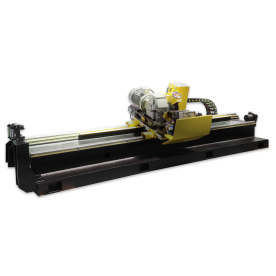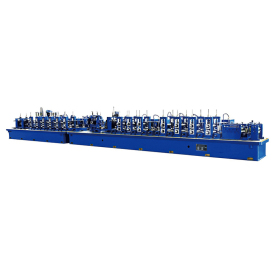****
In the realm of modern manufacturing, the quest for better quality and efficiency has led to the development of innovative technologies and machinery. One of the standout advancements in this field is the high-performance annealing machine. Renowned for its ability to improve the structural integrity and mechanical properties of materials, this machine plays a crucial role in various industries, ensuring that components and products are manufactured to the highest standards. This article delves into the workings of high-performance annealing machines, their significant advantages, and their diverse applications in today’s manufacturing landscape.
Understanding Annealing

Exploring the Advantages and Applications of High-Performance Annealing Machines in Modern Manufacturing Processes
Annealing is a thermal treatment process used to alter the physical and sometimes chemical properties of a material, typically metals and glass. It involves heating the material to a specific temperature, maintaining that temperature for a predetermined period, and then slowly cooling it down. This process helps in reducing hardening, relieving internal stresses, enhancing ductility, and achieving a uniform microstructure in the material.
The Role of High-Performance Annealing Machines
High-performance annealing machines are designed to optimize the annealing process through precise control of temperature and atmosphere. These machines utilize advanced technology to deliver consistent and repeatable results, which are vital for maintaining quality in mass production. High-performance annealing machines can handle a wide range of materials, including ferrous and non-ferrous alloys, providing manufacturers with the flexibility to meet different production demands.
Key Advantages of High-Performance Annealing Machines
1. **Improved Product Quality**: High-performance annealing machines ensure uniform heating and cooling, which significantly enhances the structural integrity of the produced materials. This uniformity translates to better mechanical properties, leading to stronger and more durable end products.
2. **Energy Efficiency**: Modern high-performance annealing machines are engineered for energy efficiency. With advanced insulation and optimized heating methods, these machines consume less energy while delivering superior results. This not only helps in reducing operational costs but also aligns with sustainability goals.
3. **Precision Process Control**: These machines are equipped with sophisticated control systems that allow manufacturers to program specific parameters for temperature and time. This level of precision minimizes variations in the annealing process, ensuring that each batch meets the required specifications.
4. **Versatility**: High-performance annealing machines can accommodate a variety of materials and shapes, making them suitable for multiple industries such as automotive, aerospace, electronics, and medical devices. This versatility allows manufacturers to diversify their product offerings without the need for multiple treatment machines.
5. **Increasing Production Throughput**: The efficiency and advanced features of high-performance annealing machines contribute to increased production rates. Faster heating and cooling cycles reduce the overall processing time, allowing manufacturers to scale up their production without compromising on quality.
Applications in Various Industries
The applications of high-performance annealing machines span across numerous sectors:
– **Automotive Industry**: In automotive manufacturing, components like gears, shafts, and springs require precise annealing to enhance wear resistance and strength. High-performance annealing machines ensure that these components achieve the necessary hardness and toughness to withstand harsh operating conditions.

Exploring the Advantages and Applications of High-Performance Annealing Machines in Modern Manufacturing Processes
– **Aerospace Sector**: The aerospace industry relies heavily on materials that can withstand extreme temperatures and pressures. High-performance annealing is essential in treating alloys used for aircraft engine components, ensuring they meet stringent safety and performance standards.

Exploring the Advantages and Applications of High-Performance Annealing Machines in Modern Manufacturing Processes
– **Electronics Manufacturing**: In the production of electronic devices, high-performance annealing machines are used to treat metals and semiconductors, improving their electrical conductivity and mechanical strength.
– **Medical Devices**: The medical field demands materials that offer high biocompatibility and strength. High-performance annealing machines play a vital role in processing surgical instruments and implants, ensuring they meet the required safety and functionality standards.
Conclusion
High-performance annealing machines represent a culmination of technological advancements in manufacturing processes. Their ability to provide improved product quality, energy efficiency, precision control, and versatility makes them indispensable in modern industry. As manufacturers continue to seek ways to enhance their production capabilities, the adoption of high-performance annealing machines is likely to rise, paving the way for innovations that will redefine material treatment and production standards. The future of manufacturing undoubtedly looks brighter with these machines at the forefront.Complete Pipe mill production line solution



